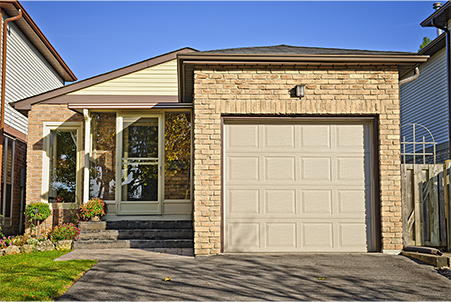For many, owning a home is the pinnacle of what is considered the American Dream. You graduate high school, then attend college or a vocational training, and eventually set off into a career. And whether that career is white- or- blue-collar, you know you have really “made it” when you own your own home. Individuals who find their way to homeownership via this route are what we consider to be your more “standard” homebuyers. Meaning, they likely have a well-established history of steady employment and income, and an above-average credit score.
And while these standard homebuyers will have less obstacles before them on their way to homeownership, there are also options for people who are considered “nonstandard” buyers. What is a nonstandard buyer? These are buyers who may be faced with negative equity in their home, who can’t afford a down payment, or who have low or no credit.
If you find yourself in one of these nonstandard situations, fear not. Here are some options for you in your quest to homeownership…
Negative Equity
If you’ve ever heard anyone say they’re “upside down” on a home loan, it means they have negative equity. In short, they owe more on the loan than the market value of the house. (Inversely, someone with positive equity could sell their home for more money than they owe on their loan.)
Homebuyers who aren’t able to make a substantial down payment are more at risk to find themselves in this situation, while those who do make a substantial down payment take possession of their home with almost immediate equity. (On a side note: while the aforementioned is true overall, a very real fact is that no one is ever in absolute control of their home’s value, as home values can take an unfortunate dive in times of economic downturn or turmoil.)
However, just because you find yourself with negative equity in your home does not mean you can’t sell your home and purchase another. If you have any cash savings, you can tap into that resource as an option to help increase your equity.
Little to No Down Payment
Home ownership is a staple of our economy – which is why government agencies and lenders have worked to expand the opportunity of homeownership to more people over the years. In the past, one of the biggest roadblocks for homebuyers when it came to a down payment was the requirement that they be made through conventional home loans. These loans often required a 20% down payment – and when homes often range in the hundreds of thousands of dollars, that requirement proved an obstacle impossible to surmount for many.
For buyers who have enough income to make their monthly mortgage payments, but don’t have a down payment saved up, there are a few 100% financing options available-minimum credit requirements do apply.
Other government-backed options include USDA loans for borrowers in rural areas, and VA loans for veterans. While both of these programs do have income requirements, they do not require a down payment to be approved, neither do they have a minimum credit score requirement. And for buyers who can afford a small down payment, there is the Federal Housing Administration’s loan program, which requires qualified buyers to only put down 3.5%.
There are also state-sponsored down payment assistance programs designed to aid qualified borrowers who may not have enough for a down payment, or who don't qualify for zero-down payment loans. Programs and requirements vary by state.
Poor or No Credit
Credit scores have a way of being the elephant in the room. And in fact, most people have less-than-perfect credit scores. Despite what some people think, a credit score does not reflect amount of income or wealth, but rather it helps gauge the potential likelihood of an individual repaying their debts. Thus, even if you can afford a down payment, if you have a low credit score or no score at all, coming into a home loan can be a challenge, to put it mildly. However, it’s not impossible.
One recourse can be the FHA loan program, which offers fixed-rate mortgages for buyers who have a credit score of 620. These loans do require a 3.5% down payment from FHA borrowers with a credit score over 620.
If you’ve always wanted to buy a home, but find yourself challenged with any of the situations mentioned above, hopefully you realize now that you might have more options than you thought. Homeownership is an experience that ideally everyone who wishes to should get the chance to enjoy, and we love it when we can help make those dreams come true. If you have any questions about your mortgage options, one of our Guardian Mortgage Professionals will gladly answer them for you.

